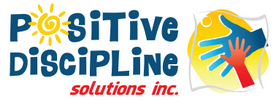Styles of Parenting & Teaching Children
 What’s your Style?
What’s your Style?
As part of my work, I am constantly looking for books and resources that will enhance my knowledge in the area of child development, parenting, etc. Over the holidays, one of the books I read was Raising an Emotionally Intelligent Child by John Gottman. This is definitely a book I would recommend to parents, childcare providers, teachers or anyone working with children. It is rich with information on helping children reach optimum social-emotional development.
One thing in the book that really tweaked my interest was a study that Dr. Gottman referred to. The study related to different parenting styles: authoritarian, authoritative and permissive. Study results indicated the following:
- Children of authoritarian parents (a “You do it because I say so – very few choices” approach) tended to be “conflicted and irritable”.
- Children of permissive parents (a “pretty much anything goes” approach) were “often impulsive, aggressive, low in self-reliance and low in achievement”.
- Children of authoritative parents (a “you can choose within limits that are respectful for all” approach) were more consistently “cooperative, self reliant, energetic, friendly and achievement oriented”.
(Note above the MAJOR difference between an authoritarian and authoritative approach. They look very similar in print, but the difference in practice is HUGE!)
What a case for Positive Discipline! Why?
Because Positive Discipline is an authoritative approach to raising and working with children. It is not authoritarian nor is it permissive! In fact it is democratic. An authoritative approach involves the adult(s) providing structure and ultimately being in charge, but… children are involved in decision making and problem solving as much as is developmentally appropriate. Children are also given as many choices as possible. The ultimate goal is to guide and teach children in a way that will help them
learn to think for themselves and ultimately lead to their independence.
Positive Discipline allows children the opportunity to make mistakes and learn from them rather than pay for them. It also helps them develop important life skills such as the ability to problem solve and make decisions. Children experience a sense of personal power over their lives and a sense of being “capable”.
No wonder children exhibit so many positive behaviours in response to this approach!
This new year, I encourage you to explore the difference Positive Discipline can make in your relationships with children by attending a Positive Discipline workshop or reading one of the Positive Discipline books.
(Please note: The study above refers to reasearch done by Diana Baumrind.)
